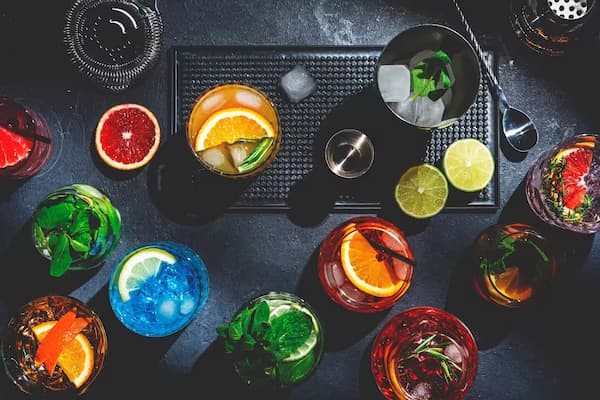Pepper
About Pepper
Pepper can be infused into spirits like vodka or gin to create a spicy base for cocktails or added to mixers and syrups for an extra layer of flavor. It's also commonly used as a garnish, either by rimming the glass for an added spice with each sip or by floating a peppercorn or two in the drink for aesthetic appeal and a burst of flavor. The versatility of pepper allows it to pair well with a wide range of ingredients, from citrus and tropical fruits to herbal and floral components, making it a staple in both savory and sweet concoctions. The key to using pepper in cocktails is moderation, as its potent flavor can easily overpower other ingredients, but when used correctly, it can elevate a drink from good to exceptional.
Q&A
What is the history and origin of pepper as a spice?
Pepper is one of the oldest known spices, originating from the Malabar Coast of India. It has been a highly prized trade good, often referred to as 'black gold,' used both as a currency and a spice for thousands of years. The use of pepper dates back to ancient times, finding its place in Greek and Roman cuisines and spreading through trade routes to Europe, the Middle East, and beyond. Its ability to preserve food and add flavor made it incredibly valuable. Today, it's grown in tropical climates around the world, with Vietnam, India, and Brazil being some of the top producers.
What are the different types of pepper used in cocktails and how do their flavors differ?
The most common types of pepper used in cocktails are black, white, green, and pink. Black pepper is the most potent, with a pungent heat and woody flavor, making it perfect for adding a spicy kick. White pepper, derived from the same plant but with the outer layer removed, provides a milder heat and is less aromatic, which is great for more subtle spice notes. Green peppercorns, harvested before they mature, offer a fresh, slightly tangy flavor, while pink peppercorns, from a different plant, provide a sweet and delicate fruity flavor with a lighter spiciness. Each type offers a unique profile that can be matched with various ingredients for distinctive cocktails.
How can you infuse pepper into spirits for cocktails?
Infusing pepper into spirits is a straightforward process that involves adding whole or cracked peppercorns directly into the bottle of spirit and allowing it to steep for a period of time. Begin by adding a small amount of peppercorns to avoid overpowering the spirit - about a teaspoon for a 750 ml bottle is a good starting point. Seal the bottle and let it sit in a cool, dark place, shaking it gently every day. Taste the infusion daily until it reaches the desired level of spiciness, which can take anywhere from a few days to several weeks. Once satisfied, strain out the peppercorns and your spicy base is ready for mixing into cocktails.
What are some creative ways to use pepper as a garnish in cocktails?
Pepper can add both flavor and visual appeal as a garnish in cocktails. For a simple approach, rim the glass with a mix of salt and crushed peppercorns to add a spicy kick with every sip. Whole peppercorns can also be skewered onto a cocktail pick along with other garnishes like citrus peels or herbs for an attractive and flavorful decoration. For a more subtle touch, lightly crush a few peppercorns and sprinkle them on top of a cocktail to add a hint of spice and a professional finish. Using pepper in varying colors can also enhance the visual appeal of your drink.
How can pepper be incorporated into non-alcoholic cocktails?
Pepper can bring complexity and a surprising twist to non-alcoholic cocktails in much the same way it does with alcoholic ones. For a spicy mocktail, consider creating a pepper-infused simple syrup by simmering water, sugar, and crushed peppercorns together, then straining out the solids. This spicy syrup can be mixed with various fruit juices, herbal teas, or soda water to create refreshing and complex drinks. Additionally, using pepper as a garnish, either rimmed on the glass or sprinkled atop the drink, can add a visually enticing and flavorful element, making non-alcoholic cocktails just as exciting as their alcoholic counterparts.
Ingredients like Pepper
Other Kitchen cupboards
How it works
Easily create your bar from the ingredients you have at home, and we'll show you what you can make with the ingredients you have to hand.
Once you've added this ingredient head to your My bar page and fill up everything else you have.
We'll also show you cocktails that can make by substituting what you have for one of the ingredients you don't, riffing on the original. Now go forth and create something delicious!


-preview-large.jpg)



-preview-large.jpg)





















-preview-large.jpg)















